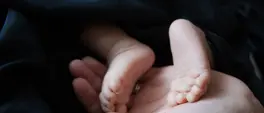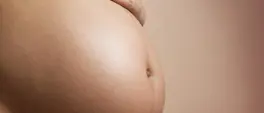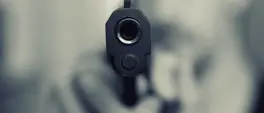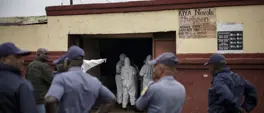Unique project to save our rhinos: Radioactive material placed in 20 live animals
Paula Luckhoff
25 June 2024 | 15:51Wits University's Rhisotope Project has entered the testing phase after years of preparation.
As the fight against rhino poaching continues, a unique project in South Africa has entered its testing phase.
The Rhisotope Project at the University of the Witwatersrand (Wits) has successfully inserted low doses of radioisotopes into 20 live rhinoceros.
This follows three years of meticulous research and preparation.
By inserting measured quantities of radioisotopes into the horns of live rhinos, they aim to use nuclear science in a novel way for conservation, the team says in a statement.
The radioisotopes can be picked up by radiation detection portal monitors at international borders, including at harbours, airports and land-crossings.
"This non-lethal yet powerful solution, aims to radically reduce the demand from end-users and save rhinos from the very real threat of extinction."
Rhisotope Project
Thabo Shole Mashao interviews Professor James Larkin, director of the Wits Radiation and Health Physics Unit (RHPU).
Prof. Larkin says the project is uniquely South African, but was carried out with the help of academics at universities around the world and also the SA Nuclear Energy Corporation (NECSA).
"I have a number of colleagues at other universities who have been 'checking' my work... I wanted to make sure that my calculations etcetera were correct and so we shared the work, so that we are confident we are right."
"This is what we would call a pilot project, so we are now going to watch these animals very closely... for a period of six months, and then bright and breezy early next year we will say to the world, here we are we'd like to help you protect your animals from predations and from poachers."
Prof. James Larkin, Director - Radiation and Health Physics Unit, Wits University
If they get it right with the rhinos, Larkin says, the work could expand to species like elephants, pangolins and rare flora like cycads.
"... so that we can keep our prized South African heritage safe for the benefit of the whole country."
Prof. James Larkin, Director - Radiation and Health Physics Unit, Wits University
For more detail, listen to the interview audio at the top of the article
Get the whole picture 💡
Take a look at the topic timeline for all related articles.
Trending News
More in Local

26 December 2025 13:00
Public has until 13 February to comment on draft Traditional Courts Regulations

26 December 2025 13:00
Western Cape welcomes 171 babies at its public hospitals on Christmas Day

26 December 2025 12:20
Border Management Authority says it cleared the Christmas Day backlog at the Lebombo border









